Life
-
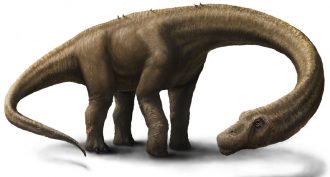 Fossils
FossilsBiggest dino ever?
This plant-eater would have towered over even a T. rex. A truly huge brute, Dreadnoughtus means ‘fear nothing.’
By Janet Raloff -
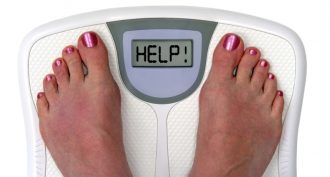 Health & Medicine
Health & MedicineYou can be too thin
Eating disorders aren’t about vanity. They are mental illnesses that can prove deadly.
-
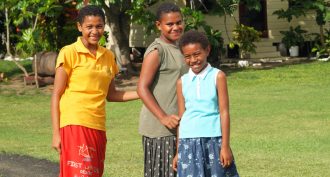 Health & Medicine
Health & MedicineThe media’s dangerous influence on body image
A study found how powerful TV and ad messages can be in distorting the attitudes about body image among young girls in Fiji.
-
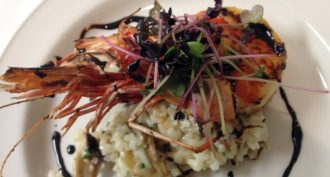 Animals
AnimalsChef puts eco-bullies on the menu
Some immigrant species can become a nuisance, eating up or displacing the natives. Often people find little incentive to catch and remove the newcomers — unless they find them too yummy to pass up.
By Janet Raloff -
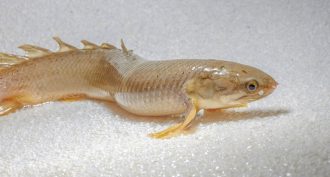 Animals
AnimalsA fish out of water — walks and morphs
When this modern ‘walking’ fish was raised on land, its body changed. How it adapted resembles some prehistoric fish. These alterations hint at evolutionary changes that may have made life on land possible.
By Susan Milius -
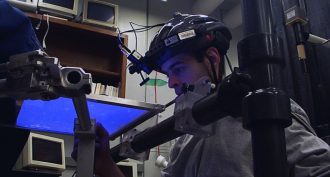 Brain
BrainMistakes: A key to learning
This man uses a robotic arm to move a cursor across a computer screen. The screen blocks his view of his hand and arm. This focuses his attention on any errors he makes as he tries to move a cursor to a target location.
-
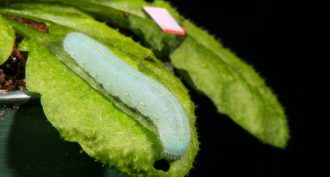 Tech
TechPlants ‘listen’ for danger
Scientists used lasers to show that plants can “hear” insect pests. Those leafy plants then mount a chemical attack in response to the bug’s chewing sounds — but not toward harmless noises such as a gentle breeze or a bug’s mating call.
-
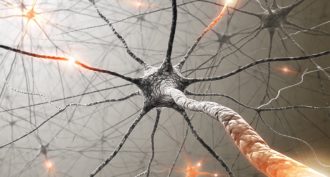 Brain
BrainLearning rewires the brain
Brain cells actually change shape as we learn. It’s one way we cement new knowledge. And much of the action happens as we sleep.
-
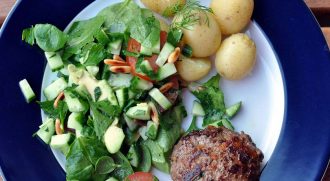 Health & Medicine
Health & MedicineStarchy foods may cut meaty risks
Eating red meat can increase the risk of certain types of cancer. But scientists have discovered that eating potatoes and other foods containing 'resistant' starch can help limit those risks.
-
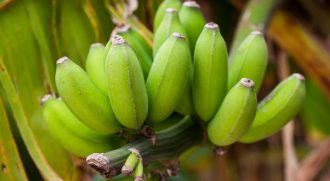 Plants
PlantsSaving the banana
A number of diseases threaten the world’s most popular fruit. Scientists are working to fight these blights. But if they don’t succeed, the sweet banana that’s a breakfast staple could disappear.
-
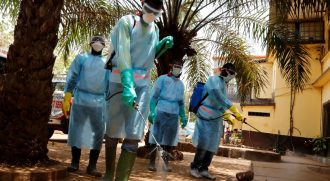 Health & Medicine
Health & MedicineEbola treatments and vaccines could be near
Using experimental medicines against Ebola might help to slow or end an outbreak in Africa that has defied efforts to control it.
By Nathan Seppa -
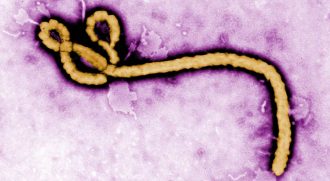 Health & Medicine
Health & MedicineExplainer: What is Ebola?
A virus is behind the hemorrhage-inducing infection called Ebola. It causes fevers and often intense bleeding — seemingly from anywhere and everywhere.
By Janet Raloff